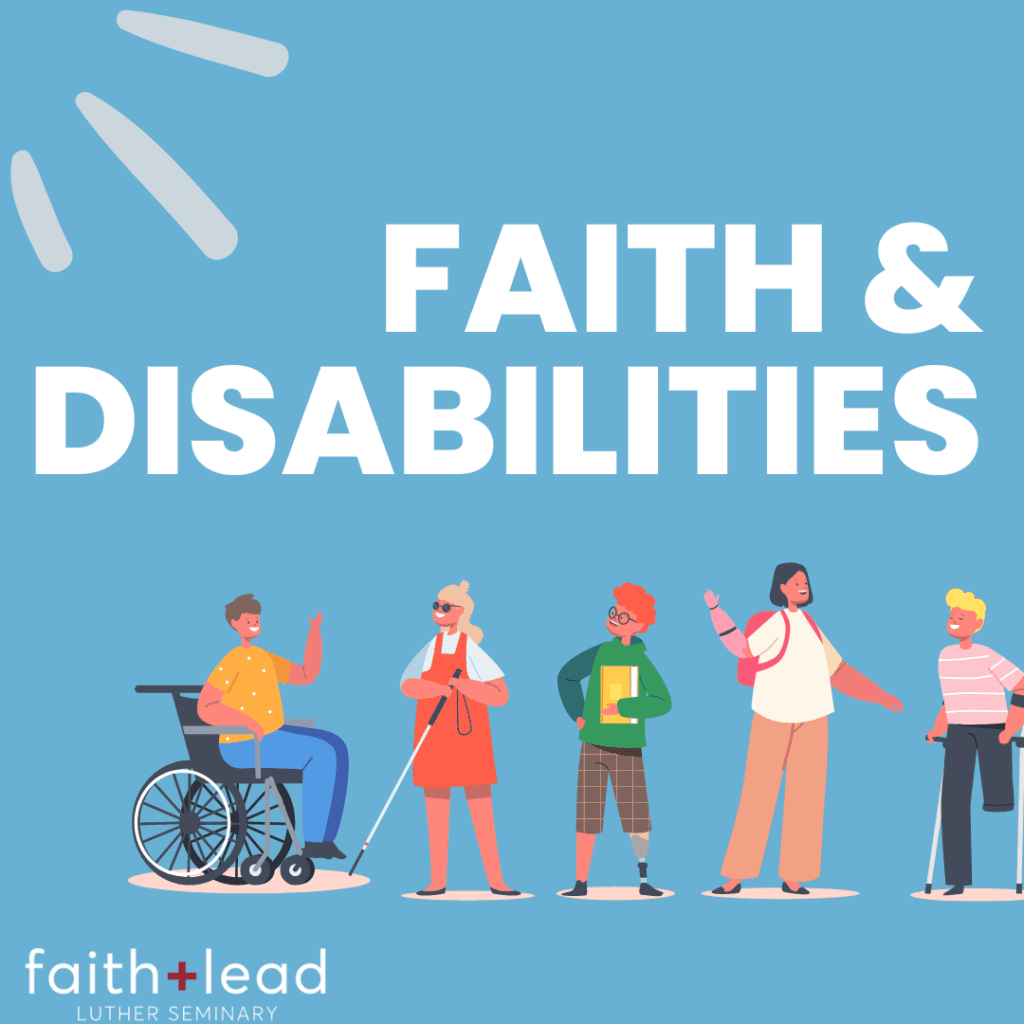In 2014, after years of silently struggling with social anxiety, sensory processing challenges, and a host of other significant challenges, I was diagnosed with autism at the age of thirty-six years old. My diagnosis came with a lot of questions. What does this mean? How does autism impact my life, my relationships, my employment? How will this discovery change my life? While all those were honest and important questions, the question that eventually proved to be the most important question for me was, “How does God see my disability?”
What are disabilities?
According to the CDC (Centers for Disease Control), sixty-one million people in the United States live with some form of a disability. That figure translates to twenty-six percent, or one in four, adults in the U.S. that are disabled. This figure does not include children (those under the age of eighteen) living with disabilities nor does it account for those who are temporarily disabled due to a variety of circumstances.
Two in five over the age of sixty-five years of age have a disability and one in four women are also included in those who have been diagnosed with a disability. The reality of disability has profound impacts on the lives of those living with disabilities and their support systems. Disability often co-occurs with several other significant life challenges. For example, approximately one-third of all people with disabilities ages eighteen to forty-four, lack regular access to a primary care physician. Subsequently many persons who fall in this category live with unmet health care needs due to ongoing costs from the previous calendar year’s treatments (“Disability Impacts All of Us Infographic | CDC”).
Disability is most often associated with medical or health conditions such as physical impairment or limitations, mental or emotional conditions, and/or injuries. health, independence, and engagement in society of people with disabilities can vary depending on several factors:
- Severity of the underlying impairment
- Social, political, and cultural influences and expectations
- Aspects of natural and built surroundings
- Availability of assistive technology and devices
- Family and community support and engagement
Disabilities and faith communities
The disability community at large has long had challenges accessing the support of the church. When the pandemic caused many organizations, including churches, to cease regular meetings, the church at large was temporarily exposed to the problems of access that the disability community had long experienced before the pandemic. This reality provided an opportunity to talk more about the role of the church in serving the disability community.
According to Understood, a digital data resource, families with disabilities often feel excluded from faith communities. Families that have children with behavior or social issues are less likely to attend religious services than other families. They report that fifty-six percent of families kept their children from religious activities because of lack of support. Forty-six percent of families report having never been asked by a pastor or church leader how to include their child in activities at church. In addition, nearly one third of families who have attended church report having to change places of worship because they felt excluded. Understood also reported that depending on the type of disability (or mental health issue) there was an increased chance of families not attending church. Below is the date that represents their research
- 19% chance of not attending due to ADHD
- 36% chance of not attending due to a learning disability
- 45% chance of not attending due to anxiety
- 55% chance of not attending due to a conduct disorder
- 84% chance of not attending due to an autism diagnosis1
Attending church can be challenging for those with neurological differences or other developmental, intellectual, or physical disabilities. There are a number of challenges and invisible barriers that can make it difficult for those with disabilities to feel included in their local faith communities.
Robust disability theology
Creating disability inclusive faith communities begins with having a robust discussion about disability, faith, and theology and the role that God plays in understanding our bodies. Disability theology is an important aspect of all faith communities because it extends beyond simply accommodating difference. Disability theology is important in our faith communities because it is an exploration of God’s embodied human experience and the ways in which the Christian belief of an incarnate God helps us to interrogate humanity’s experience with God.
Simply put, disability theology isn’t just about understanding disability, it’s about understanding God’s desire to express his image in the bodies of his prized creation. Disability theology stimulates our imagination about what is possible with God. So what is disability theology and why should Christians who are not directly impacted by disability, engage in theological discussions about God’s role in disability?
Disability theology is a branch of systematic theology that considers the influence that disability has on faith, interpretation of scripture, relational connection to God. Disability theology is important to all Christians and churches because people with disabilities are a minority group, and their experiences are often underrepresented in society and in the church. Living life with a disability is a unique experience that shapes a person’s faith and in doing so, shapes our collective understanding of God.
Where should we begin?
One of my favorite Bible stories is a great place to begin a discussion about disability theology.
“As Jesus was walking along, he saw a man who had been blind from birth. ‘Rabbi,’ his disciples asked him, ‘why was this man born blind? Was it because of his own sins of his parents’ sins?’ ‘It was no because of his sins or his parents’ sins,’ Jesus answered.’ ‘This happened so the power of God could be seen in him’.” (John 9:1-2 NLT)
Jesus shows us in this story that what’s most important in learning about a theology of disability is asking the right questions. The disciples wanted to know why the man was born with a physical limitation. Why was he born blind? What was the source for his disability?
Jesus has a simple response. It was no one’s fault that the man could not see, but the value of his life will be determined not by his lack of sight but by how the power of God would be seen in him. In other words the best question is not “Why can’t this man see?” but rather “How can God be seen?” In the end, disability theology is important to all Christians because it reminds us that even in the face of human limitation, God is at work, and that is a great place to begin our discussions and to build better churches.
Reference:
- Andrew M.I. Lee, JD, Inclusion Fact Sheet for Faith Leaders: Understood.org https://www.understood.org/en/family/events-outings/holidays-celebrations/download-tools-to-help-faith-leaders-include-kids-with-behavior-and-social-skills-issues (Accessed March 29, 2022)




